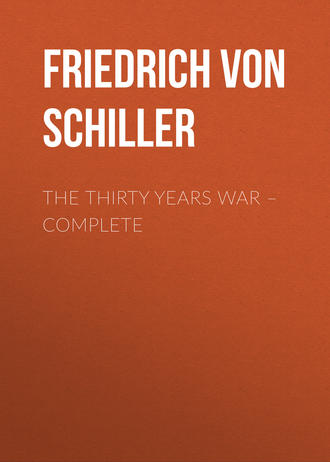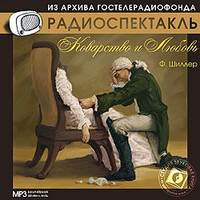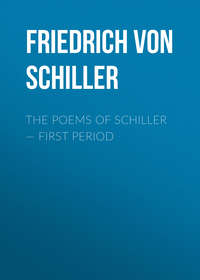 полная версия
полная версияThe Thirty Years War – Complete
At this critical moment, when only a supple policy, united with a vigorous arm, could have maintained the tranquillity of the Empire, its evil genius gave it a Rodolph for Emperor. At a more peaceful period the Germanic Union would have managed its own interests, and Rodolph, like so many others of his rank, might have hidden his deficiencies in a mysterious obscurity. But the urgent demand for the qualities in which he was most deficient revealed his incapacity. The position of Germany called for an emperor who, by his known energies, could give weight to his resolves; and the hereditary dominions of Rodolph, considerable as they were, were at present in a situation to occasion the greatest embarrassment to the governors.
The Austrian princes, it is true were Roman Catholics, and in addition to that, the supporters of Popery, but their countries were far from being so. The reformed opinions had penetrated even these, and favoured by Ferdinand’s necessities and Maximilian’s mildness, had met with a rapid success. The Austrian provinces exhibited in miniature what Germany did on a larger scale. The great nobles and the ritter class or knights were chiefly evangelical, and in the cities the Protestants had a decided preponderance. If they succeeded in bringing a few of their party into the country, they contrived imperceptibly to fill all places of trust and the magistracy with their own adherents, and to exclude the Catholics. Against the numerous order of the nobles and knights, and the deputies from the towns, the voice of a few prelates was powerless; and the unseemly ridicule and offensive contempt of the former soon drove them entirely from the provincial diets. Thus the whole of the Austrian Diet had imperceptibly become Protestant, and the Reformation was making rapid strides towards its public recognition. The prince was dependent on the Estates, who had it in their power to grant or refuse supplies. Accordingly, they availed themselves of the financial necessities of Ferdinand and his son to extort one religious concession after another. To the nobles and knights, Maximilian at last conceded the free exercise of their religion, but only within their own territories and castles. The intemperate enthusiasm of the Protestant preachers overstepped the boundaries which prudence had prescribed. In defiance of the express prohibition, several of them ventured to preach publicly, not only in the towns, but in Vienna itself, and the people flocked in crowds to this new doctrine, the best seasoning of which was personality and abuse. Thus continued food was supplied to fanaticism, and the hatred of two churches, that were such near neighbours, was farther envenomed by the sting of an impure zeal.
Among the hereditary dominions of the House of Austria, Hungary and Transylvania were the most unstable, and the most difficult to retain. The impossibility of holding these two countries against the neighbouring and overwhelming power of the Turks, had already driven Ferdinand to the inglorious expedient of recognizing, by an annual tribute, the Porte’s supremacy over Transylvania; a shameful confession of weakness, and a still more dangerous temptation to the turbulent nobility, when they fancied they had any reason to complain of their master. Not without conditions had the Hungarians submitted to the House of Austria. They asserted the elective freedom of their crown, and boldly contended for all those prerogatives of their order which are inseparable from this freedom of election. The near neighbourhood of Turkey, the facility of changing masters with impunity, encouraged the magnates still more in their presumption; discontented with the Austrian government they threw themselves into the arms of the Turks; dissatisfied with these, they returned again to their German sovereigns. The frequency and rapidity of these transitions from one government to another, had communicated its influences also to their mode of thinking; and as their country wavered between the Turkish and Austrian rule, so their minds vacillated between revolt and submission. The more unfortunate each nation felt itself in being degraded into a province of a foreign kingdom, the stronger desire did they feel to obey a monarch chosen from amongst themselves, and thus it was always easy for an enterprising noble to obtain their support. The nearest Turkish pasha was always ready to bestow the Hungarian sceptre and crown on a rebel against Austria; just as ready was Austria to confirm to any adventurer the possession of provinces which he had wrested from the Porte, satisfied with preserving thereby the shadow of authority, and with erecting at the same time a barrier against the Turks. In this way several of these magnates, Batbori, Boschkai, Ragoczi, and Bethlen succeeded in establishing themselves, one after another, as tributary sovereigns in Transylvania and Hungary; and they maintained their ground by no deeper policy than that of occasionally joining the enemy, in order to render themselves more formidable to their own prince.
Ferdinand, Maximilian, and Rodolph, who were all sovereigns of Hungary and Transylvania, exhausted their other territories in endeavouring to defend these from the hostile inroads of the Turks, and to put down intestine rebellion. In this quarter destructive wars were succeeded but by brief truces, which were scarcely less hurtful: far and wide the land lay waste, while the injured serf had to complain equally of his enemy and his protector. Into these countries also the Reformation had penetrated; and protected by the freedom of the States, and under the cover of the internal disorders, had made a noticeable progress. Here too it was incautiously attacked, and party spirit thus became yet more dangerous from religious enthusiasm. Headed by a bold rebel, Boschkai, the nobles of Hungary and Transylvania raised the standard of rebellion. The Hungarian insurgents were upon the point of making common cause with the discontented Protestants in Austria, Moravia, and Bohemia, and uniting all those countries in one fearful revolt. The downfall of popery in these lands would then have been inevitable.
Long had the Austrian archdukes, the brothers of the Emperor, beheld with silent indignation the impending ruin of their house; this last event hastened their decision. The Archduke Matthias, Maximilian’s second son, Viceroy in Hungary, and Rodolph’s presumptive heir, now came forward as the stay of the falling house of Hapsburg. In his youth, misled by a false ambition, this prince, disregarding the interests of his family, had listened to the overtures of the Flemish insurgents, who invited him into the Netherlands to conduct the defence of their liberties against the oppression of his own relative, Philip the Second. Mistaking the voice of an insulated faction for that of the entire nation, Matthias obeyed the call. But the event answered the expectations of the men of Brabant as little as his own, and from this imprudent enterprise he retired with little credit.
Far more honourable was his second appearance in the political world. Perceiving that his repeated remonstrances with the Emperor were unavailing, he assembled the archdukes, his brothers and cousins, at Presburg, and consulted with them on the growing perils of their house, when they unanimously assigned to him, as the oldest, the duty of defending that patrimony which a feeble brother was endangering. In his hands they placed all their powers and rights, and vested him with sovereign authority, to act at his discretion for the common good. Matthias immediately opened a communication with the Porte and the Hungarian rebels, and through his skilful management succeeded in saving, by a peace with the Turks, the remainder of Hungary, and by a treaty with the rebels, preserved the claims of Austria to the lost provinces. But Rodolph, as jealous as he had hitherto been careless of his sovereign authority, refused to ratify this treaty, which he regarded as a criminal encroachment on his sovereign rights. He accused the Archduke of keeping up a secret understanding with the enemy, and of cherishing treasonable designs on the crown of Hungary.
The activity of Matthias was, in truth, anything but disinterested; the conduct of the Emperor only accelerated the execution of his ambitious views. Secure, from motives of gratitude, of the devotion of the Hungarians, for whom he had so lately obtained the blessings of peace; assured by his agents of the favourable disposition of the nobles, and certain of the support of a large party, even in Austria, he now ventured to assume a bolder attitude, and, sword in hand, to discuss his grievances with the Emperor. The Protestants in Austria and Moravia, long ripe for revolt, and now won over to the Archduke by his promises of toleration, loudly and openly espoused his cause, and their long-menaced alliance with the Hungarian rebels was actually effected. Almost at once a formidable conspiracy was planned and matured against the Emperor. Too late did he resolve to amend his past errors; in vain did he attempt to break up this fatal alliance. Already the whole empire was in arms; Hungary, Austria, and Moravia had done homage to Matthias, who was already on his march to Bohemia to seize the Emperor in his palace, and to cut at once the sinews of his power.
Bohemia was not a more peaceable possession for Austria than Hungary; with this difference only, that, in the latter, political considerations, in the former, religious dissensions, fomented disorders. In Bohemia, a century before the days of Luther, the first spark of the religious war had been kindled; a century after Luther, the first flames of the thirty years’ war burst out in Bohemia. The sect which owed its rise to John Huss, still existed in that country; – it agreed with the Romish Church in ceremonies and doctrines, with the single exception of the administration of the Communion, in which the Hussites communicated in both kinds. This privilege had been conceded to the followers of Huss by the Council of Basle, in an express treaty, (the Bohemian Compact); and though it was afterwards disavowed by the popes, they nevertheless continued to profit by it under the sanction of the government. As the use of the cup formed the only important distinction of their body, they were usually designated by the name of Utraquists; and they readily adopted an appellation which reminded them of their dearly valued privilege. But under this title lurked also the far stricter sects of the Bohemian and Moravian Brethren, who differed from the predominant church in more important particulars, and bore, in fact, a great resemblance to the German Protestants. Among them both, the German and Swiss opinions on religion made rapid progress; while the name of Utraquists, under which they managed to disguise the change of their principles, shielded them from persecution.
In truth, they had nothing in common with the Utraquists but the name; essentially, they were altogether Protestant. Confident in the strength of their party, and the Emperor’s toleration under Maximilian, they had openly avowed their tenets. After the example of the Germans, they drew up a Confession of their own, in which Lutherans as well as Calvinists recognized their own doctrines, and they sought to transfer to the new Confession the privileges of the original Utraquists. In this they were opposed by their Roman Catholic countrymen, and forced to rest content with the Emperor’s verbal assurance of protection.
As long as Maximilian lived, they enjoyed complete toleration, even under the new form they had taken. Under his successor the scene changed. An imperial edict appeared, which deprived the Bohemian Brethren of their religious freedom. Now these differed in nothing from the other Utraquists. The sentence, therefore, of their condemnation, obviously included all the partisans of the Bohemian Confession. Accordingly, they all combined to oppose the imperial mandate in the Diet, but without being able to procure its revocation. The Emperor and the Roman Catholic Estates took their ground on the Compact and the Bohemian Constitution; in which nothing appeared in favour of a religion which had not then obtained the voice of the country. Since that time, how completely had affairs changed! What then formed but an inconsiderable opinion, had now become the predominant religion of the country. And what was it then, but a subterfuge to limit a newly spreading religion by the terms of obsolete treaties? The Bohemian Protestants appealed to the verbal guarantee of Maximilian, and the religious freedom of the Germans, with whom they argued they ought to be on a footing of equality. It was in vain – their appeal was dismissed.
Such was the posture of affairs in Bohemia, when Matthias, already master of Hungary, Austria, and Moravia, appeared in Kolin, to raise the Bohemian Estates also against the Emperor. The embarrassment of the latter was now at its height. Abandoned by all his other subjects, he placed his last hopes on the Bohemians, who, it might be foreseen, would take advantage of his necessities to enforce their own demands. After an interval of many years, he once more appeared publicly in the Diet at Prague; and to convince the people that he was really still in existence, orders were given that all the windows should be opened in the streets through which he was to pass – proof enough how far things had gone with him. The event justified his fears. The Estates, conscious of their own power, refused to take a single step until their privileges were confirmed, and religious toleration fully assured to them. It was in vain to have recourse now to the old system of evasion. The Emperor’s fate was in their hands, and he must yield to necessity. At present, however, he only granted their other demands – religious matters he reserved for consideration at the next Diet.
The Bohemians now took up arms in defence of the Emperor, and a bloody war between the two brothers was on the point of breaking out. But Rodolph, who feared nothing so much as remaining in this slavish dependence on the Estates, waited not for a warlike issue, but hastened to effect a reconciliation with his brother by more peaceable means. By a formal act of abdication he resigned to Matthias, what indeed he had no chance of wresting from him, Austria and the kingdom of Hungary, and acknowledged him as his successor to the crown of Bohemia.
Dearly enough had the Emperor extricated himself from one difficulty, only to get immediately involved in another. The settlement of the religious affairs of Bohemia had been referred to the next Diet, which was held in 1609. The reformed Bohemians demanded the free exercise of their faith, as under the former emperors; a Consistory of their own; the cession of the University of Prague; and the right of electing `Defenders’, or `Protectors’ of `Liberty’, from their own body. The answer was the same as before; for the timid Emperor was now entirely fettered by the unreformed party. However often, and in however threatening language the Estates renewed their remonstrances, the Emperor persisted in his first declaration of granting nothing beyond the old compact. The Diet broke up without coming to a decision; and the Estates, exasperated against the Emperor, arranged a general meeting at Prague, upon their own authority, to right themselves.
They appeared at Prague in great force. In defiance of the imperial prohibition, they carried on their deliberations almost under the very eyes of the Emperor. The yielding compliance which he began to show, only proved how much they were feared, and increased their audacity. Yet on the main point he remained inflexible. They fulfilled their threats, and at last resolved to establish, by their own power, the free and universal exercise of their religion, and to abandon the Emperor to his necessities until he should confirm this resolution. They even went farther, and elected for themselves the DEFENDERS which the Emperor had refused them. Ten were nominated by each of the three Estates; they also determined to raise, as soon as possible, an armed force, at the head of which Count Thurn, the chief organizer of the revolt, should be placed as general defender of the liberties of Bohemia. Their determination brought the Emperor to submission, to which he was now counselled even by the Spaniards. Apprehensive lest the exasperated Estates should throw themselves into the arms of the King of Hungary, he signed the memorable Letter of Majesty for Bohemia, by which, under the successors of the Emperor, that people justified their rebellion.
The Bohemian Confession, which the States had laid before the Emperor Maximilian, was, by the Letter of Majesty, placed on a footing of equality with the olden profession. The Utraquists, for by this title the Bohemian Protestants continued to designate themselves, were put in possession of the University of Prague, and allowed a Consistory of their own, entirely independent of the archiepiscopal see of that city. All the churches in the cities, villages, and market towns, which they held at the date of the letter, were secured to them; and if in addition they wished to erect others, it was permitted to the nobles, and knights, and the free cities to do so. This last clause in the Letter of Majesty gave rise to the unfortunate disputes which subsequently rekindled the flames of war in Europe.
The Letter of Majesty erected the Protestant part of Bohemia into a kind of republic. The Estates had learned to feel the power which they gained by perseverance, unity, and harmony in their measures. The Emperor now retained little more than the shadow of his sovereign authority; while by the new dignity of the so-called defenders of liberty, a dangerous stimulus was given to the spirit of revolt. The example and success of Bohemia afforded a tempting seduction to the other hereditary dominions of Austria, and all attempted by similar means to extort similar privileges. The spirit of liberty spread from one province to another; and as it was chiefly the disunion among the Austrian princes that had enabled the Protestants so materially to improve their advantages, they now hastened to effect a reconciliation between the Emperor and the King of Hungary.
But the reconciliation could not be sincere. The wrong was too great to be forgiven, and Rodolph continued to nourish at heart an unextinguishable hatred of Matthias. With grief and indignation he brooded over the thought, that the Bohemian sceptre was finally to descend into the hands of his enemy; and the prospect was not more consoling, even if Matthias should die without issue. In that case, Ferdinand, Archduke of Graetz, whom he equally disliked, was the head of the family. To exclude the latter as well as Matthias from the succession to the throne of Bohemia, he fell upon the project of diverting that inheritance to Ferdinand’s brother, the Archduke Leopold, Bishop of Passau, who among all his relatives had ever been the dearest and most deserving. The prejudices of the Bohemians in favour of the elective freedom of their crown, and their attachment to Leopold’s person, seemed to favour this scheme, in which Rodolph consulted rather his own partiality and vindictiveness than the good of his house. But to carry out this project, a military force was requisite, and Rodolph actually assembled an army in the bishopric of Passau. The object of this force was hidden from all. An inroad, however, which, for want of pay it made suddenly and without the Emperor’s knowledge into Bohemia, and the outrages which it there committed, stirred up the whole kingdom against him. In vain he asserted his innocence to the Bohemian Estates; they would not believe his protestations; vainly did he attempt to restrain the violence of his soldiery; they disregarded his orders. Persuaded that the Emperor’s object was to annul the Letter of Majesty, the Protectors of Liberty armed the whole of Protestant Bohemia, and invited Matthias into the country. After the dispersion of the force he had collected at Passau, the Emperor remained helpless at Prague, where he was kept shut up like a prisoner in his palace, and separated from all his councillors. In the meantime, Matthias entered Prague amidst universal rejoicings, where Rodolph was soon afterwards weak enough to acknowledge him King of Bohemia. So hard a fate befell this Emperor; he was compelled, during his life, to abdicate in favour of his enemy that very throne, of which he had been endeavouring to deprive him after his own death. To complete his degradation, he was obliged, by a personal act of renunciation, to release his subjects in Bohemia, Silesia, and Lusatia from their allegiance, and he did it with a broken heart. All, even those he thought he had most attached to his person, had abandoned him. When he had signed the instrument, he threw his hat upon the ground, and gnawed the pen which had rendered so shameful a service.
While Rodolph thus lost one hereditary dominion after another, the imperial dignity was not much better maintained by him. Each of the religious parties into which Germany was divided, continued its efforts to advance itself at the expense of the other, or to guard against its attacks. The weaker the hand that held the sceptre, and the more the Protestants and Roman Catholics felt they were left to themselves, the more vigilant necessarily became their watchfulness, and the greater their distrust of each other. It was enough that the Emperor was ruled by Jesuits, and was guided by Spanish counsels, to excite the apprehension of the Protestants, and to afford a pretext for hostility. The rash zeal of the Jesuits, which in the pulpit and by the press disputed the validity of the religious peace, increased this distrust, and caused their adversaries to see a dangerous design in the most indifferent measures of the Roman Catholics. Every step taken in the hereditary dominions of the Emperor, for the repression of the reformed religion, was sure to draw the attention of all the Protestants of Germany; and this powerful support which the reformed subjects of Austria met, or expected to meet with from their religious confederates in the rest of Germany, was no small cause of their confidence, and of the rapid success of Matthias. It was the general belief of the Empire, that they owed the long enjoyment of the religious peace merely to the difficulties in which the Emperor was placed by the internal troubles in his dominions, and consequently they were in no haste to relieve him from them.
Almost all the affairs of the Diet were neglected, either through the procrastination of the Emperor, or through the fault of the Protestant Estates, who had determined to make no provision for the common wants of the Empire till their own grievances were removed. These grievances related principally to the misgovernment of the Emperor; the violation of the religious treaty, and the presumptuous usurpations of the Aulic Council, which in the present reign had begun to extend its jurisdiction at the expense of the Imperial Chamber. Formerly, in all disputes between the Estates, which could not be settled by club law, the Emperors had in the last resort decided of themselves, if the case were trifling, and in conjunction with the princes, if it were important; or they determined them by the advice of imperial judges who followed the court. This superior jurisdiction they had, in the end of the fifteenth century, assigned to a regular and permanent tribunal, the Imperial Chamber of Spires, in which the Estates of the Empire, that they might not be oppressed by the arbitrary appointment of the Emperor, had reserved to themselves the right of electing the assessors, and of periodically reviewing its decrees. By the religious peace, these rights of the Estates, (called the rights of presentation and visitation,) were extended also to the Lutherans, so that Protestant judges had a voice in Protestant causes, and a seeming equality obtained for both religions in this supreme tribunal.
But the enemies of the Reformation and of the freedom of the Estates, vigilant to take advantage of every incident that favoured their views, soon found means to neutralize the beneficial effects of this institution. A supreme jurisdiction over the Imperial States was gradually and skilfully usurped by a private imperial tribunal, the Aulic Council in Vienna, a court at first intended merely to advise the Emperor in the exercise of his undoubted, imperial, and personal prerogatives; a court, whose members being appointed and paid by him, had no law but the interest of their master, and no standard of equity but the advancement of the unreformed religion of which they were partisans. Before the Aulic Council were now brought several suits originating between Estates differing in religion, and which, therefore, properly belonged to the Imperial Chamber. It was not surprising if the decrees of this tribunal bore traces of their origin; if the interests of the Roman Church and of the Emperor were preferred to justice by Roman Catholic judges, and the creatures of the Emperor. Although all the Estates of Germany seemed to have equal cause for resisting so perilous an abuse, the Protestants alone, who most sensibly felt it, and even these not all at once and in a body, came forward as the defenders of German liberty, which the establishment of so arbitrary a tribunal had outraged in its most sacred point, the administration of justice. In fact, Germany would have had little cause to congratulate itself upon the abolition of club-law, and in the institution of the Imperial Chamber, if an arbitrary tribunal of the Emperor was allowed to interfere with the latter. The Estates of the German Empire would indeed have improved little upon the days of barbarism, if the Chamber of Justice in which they sat along with the Emperor as judges, and for which they had abandoned their original princely prerogative, should cease to be a court of the last resort. But the strangest contradictions were at this date to be found in the minds of men. The name of Emperor, a remnant of Roman despotism, was still associated with an idea of autocracy, which, though it formed a ridiculous inconsistency with the privileges of the Estates, was nevertheless argued for by jurists, diffused by the partisans of despotism, and believed by the ignorant.









